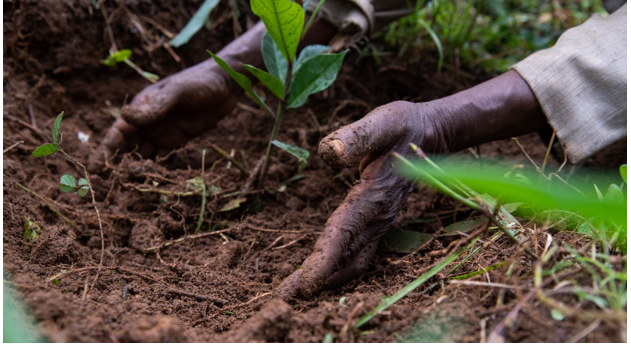i INP-WEALTHPK
Arooj Zulfiqar
Regenerative agriculture is not just a trend but a critical strategy for preserving biodiversity and ensuring food security in an era of climate change and environmental degradation, reports WealthPK.

“Regenerative approach not only enhances food security but also plays a pivotal role in preserving the planet’s rich biodiversity,” notes Dr Muhammad Hanif, a senior scientific officer at the National Agricultural Research Centre (NARC). “Unlike conventional agricultural practices, which often deplete soil health and biodiversity, regenerative techniques focus on building soil fertility, promoting crop diversity and fostering resilient ecosystems. These practices include cover cropping, crop rotation, agroforestry and reduced tillage, all of which contribute to a thriving environment,” he pointed out. Talking to WealthPK, Hanif said: “Biodiversity is essential for resilient ecosystems, providing a range of ecosystem services such as pollination, pest control and nutrient cycling, contributing to a more balanced ecosystem.”
“Moreover, the preservation of indigenous plant varieties and local breeds is crucial for maintaining genetic diversity. These resilient species often have traits that allow them to adapt to changing climatic conditions, making them essential for future food security. Regenerative agriculture encourages farmers to cultivate these diverse varieties, helping safeguard the genetic resources that underpin global food systems,” he said. The NARC scientist maintained: “Under regenerative agriculture, the crop is suggested to grow on permanent raised beds under mulch conditions; this not only saves water but also saves other inputs.” Talking to WealthPK, M Ahmed, a farmer from Punjab, said: “We must allow nature to improve itself in its own way. Globally, most food is produced through intensive industrial agriculture.”
“Deforestation, climate change, irrigation problems, pollutants, soil degradation and waste disposal are just some of the environmental problems associated with industrial agriculture,” he pointed out. “Since I started using regenerative practices like crop rotation, I’ve seen not only healthier soil but also more wildlife returning to my land,” he said, adding: “The soil retains water better, and I don’t have to depend as much on chemicals. At first, the change was challenging, but now I’m saving money on inputs, and my yields are more consistent, even in tough seasons. It’s been a win-win for my farm and the environment.”
Credit: INP-WealthPk



